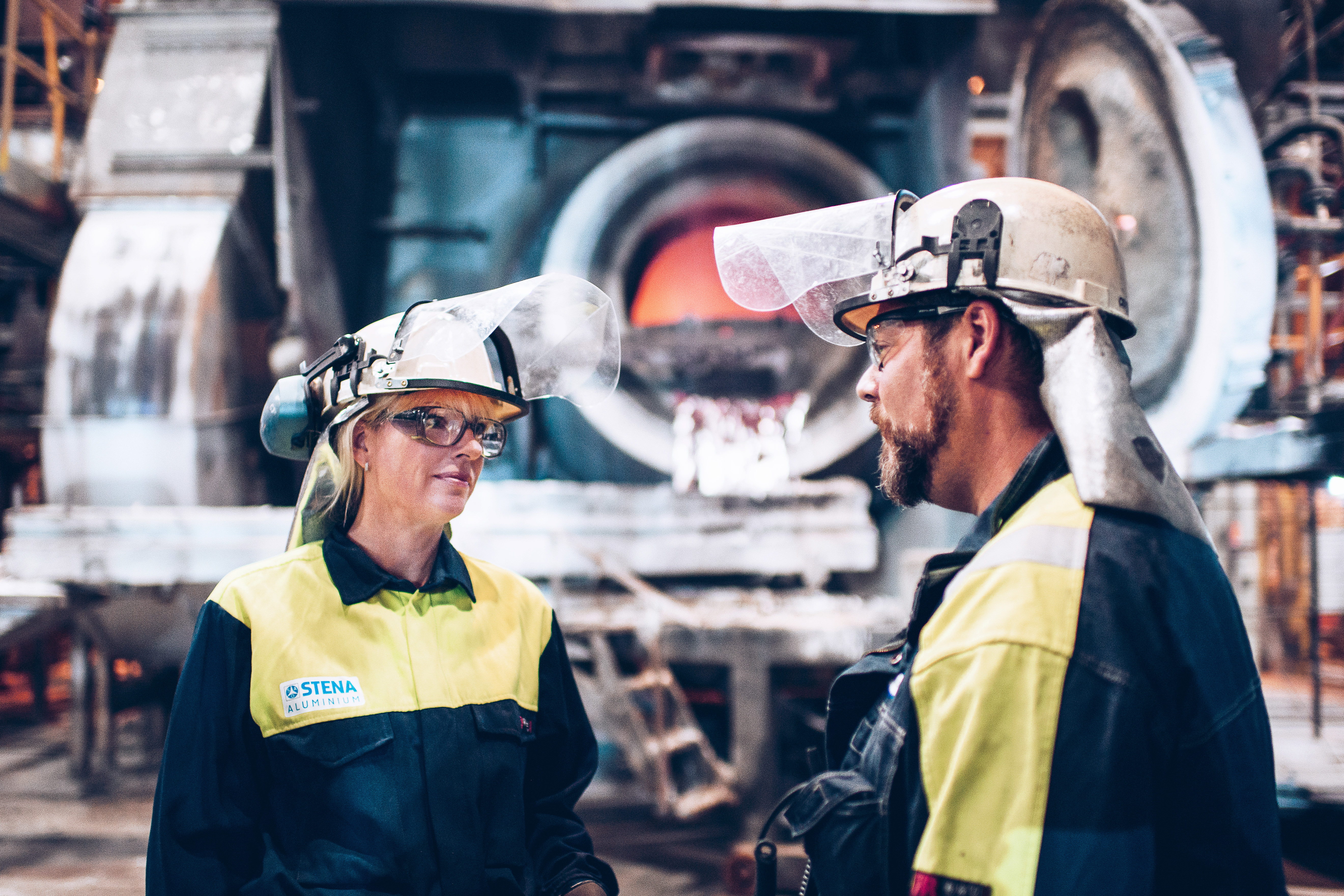
About us
Aluminium can be recycled over and over again

The right support for the next generation.
and your next deal.
Stena Aluminium is a premium supplier of recycled raw material and never supply secondary alloys. We offer circular solutions and maintain control over the documentation, technology and raw materials in order to ensure new products can be manufactured from recycled aluminium in an endless cycle. If you need technical support, help monitoring CO2 emissions or managing the GHGP (greenhouse gas protocol), we’re just a phone call away.
Many environmental challenges.
One complete solution.
We offer you and your customers a complete circular solution that helps to reduce your climate footprint. We also provide documentation that allows you to compile comprehensive environmental reporting. If you need to evaluate in-depth technical alternatives, we're more than happy to get involved. Our Technical Support department offers services including the supply of aluminum in liquid form and the provision of specific information about material contents.
Infinitely recyclable.
reduces transportation emissions.
One major advantage of recycling aluminium is that it significantly reduces environmental impact. Recycling aluminium raw materials consumes around 5 percent of the energy required to produce aluminium from virgin resources. As aluminium is both lightweight and strong, it’s excellent for construction applications, as well as reducing transportation emissions and energy consumption.
Why choose Stena Aluminium as a supplier?
We adapt to your needs
We carry out training wherever it suits you
We have a unique focus on sustainability
Share article
